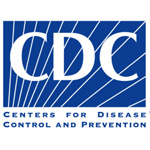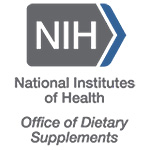Glucosamine
(Glucosamine Hydrochloride, Chitosamine, Glucosamine Sulfate, Glucosamine Hydrochloride and N-Acetyl Glucosamine)
What is it?
Glucosamine sulfate is a compound that your body uses to make cartilage.
Does it occur naturally in the body?
Yes.
What are the claims?
That people with arthritis may not produce enough glucosamine and that by taking it as a supplement might help restore eroded cartilage in arthritic joints.
Does it work?
Nope. Early studies seemed to indicate it might be helpful. Watch the video above to realize how Publication Bias made it appear like it was beneficial, without offering any relief.
In a 2003 study, researchers analyzed data from 15 studies that involved glucosamine. The result is that researchers concluded, "We found that the drugs do work on symptoms - mobility, pain relief, quality of life - and that they are very safe."
Another study by scientists in Belgium reported in the Journal of the North American Menopause Society (11: 138-143, 2004) that post-menopausal women who took 1,500 milligrams of glucosamine for three years demonstrated improvement in knee cartilage, while those in the placebo group showed cartilage deterioration.
In 2006 a study was finished by the National Center for Complementary and Alternative Medicine (NCCAM) and the National Institute of Arthritis and Musculoskeletal and Skin Diseases. 1,583 patients who had symptomatic osteoarthritis of the knee were studied to determine the benefit. Participants were randomly assigned to receive glucosamine, chondroitin sulfate, both supplements, an anti-inflammatory Celebrex or a placebo. There was no statistical benefit for any group other than the one taking Celebrex.
Based on the studies, glucosamine MAY benefit post-menopausal women but doesn't seem to offer any benefit for people with symptomatic osteoarthritis of the knee.
What are the dangers?
Only mild side effects have been reported, including nausea, diarrhea, increased blood-clotting time, constipation and heartburn. During the Belgium study, possible side effects noted include resistance to insulin and IGF-1 (two important tissue building hormones). In addition, researchers have noted that it may be less risky than conventional non-steroidal (NSAID) painkillers, which can cause stomach bleeding and even liver or kidney damage with long-term use.
The Bottom Line
Glucosamine has only clinically been shown to provide benefit for post-menopausal women (especially when paired with chondroitin). For that group, it seems to have few side effects.
If you are experiencing joint pain due to symptomatic osteoarthritis, glucosamine does not appear to offer any benefit.
Links for More Info
| Centers for Disease Control and Prevention http://www.cdc.gov/ |
|
| United States Food and Drug Administration (FDA) http://www.fda.gov/ |
|
| Herbs, Botanicals & Other Products - Extensive Information from the Memorial Sloan-Kettering Cancer Center https://www.mskcc.org/cancer-care/diagnosis-treatment/symptom-management/integrative-medicine/herbs |
|
| National Center for Complementary and Integrative Health - Overviews on Herbal Treatments and Supplements https://www.nccih.nih.gov/health/herbsataglance |
|
| National Institutes of Health http://www.nih.gov/ |
|
| National Institutes of Health - Office of Dietary Supplements https://ods.od.nih.gov/ |
|
| Operation Supplement Safety https://www.opss.org/ |
|
| United States Department of Agriculture http://www.USDA.gov/ |
|
| WebMD - Helping you make better decisions for life. http://www.webmd.com/ |
|
We at WeBeFit DO NOT recommend ANY supplements to ANY of our clients. ONLY a licensed Nutritionist or Medical Doctor can make those recommendations based on your individual needs.
This is being provided for INFORMATIONAL and EDUCATIONAL purposes only.
CAUTION: These supplements have not been evaluated by the Food and Drug Administration (FDA) for safety, effectiveness or purity. There may be unknown risks associated with taking any supplements. There are no regulated manufacturing standards for companies that make supplements. There have been instances where herbal or health supplements have been sold that were contaminated with toxic substances. If you should choose to purchase herbal or health supplements, please only purchase them from a reliable source to minimize the risk of contamination.
If you should decide to use ANY supplement, ALWAYS consult your doctor or Nutritionist first.
8/8/2006
Updated 8/24/2011
Updated 6/20/2022











